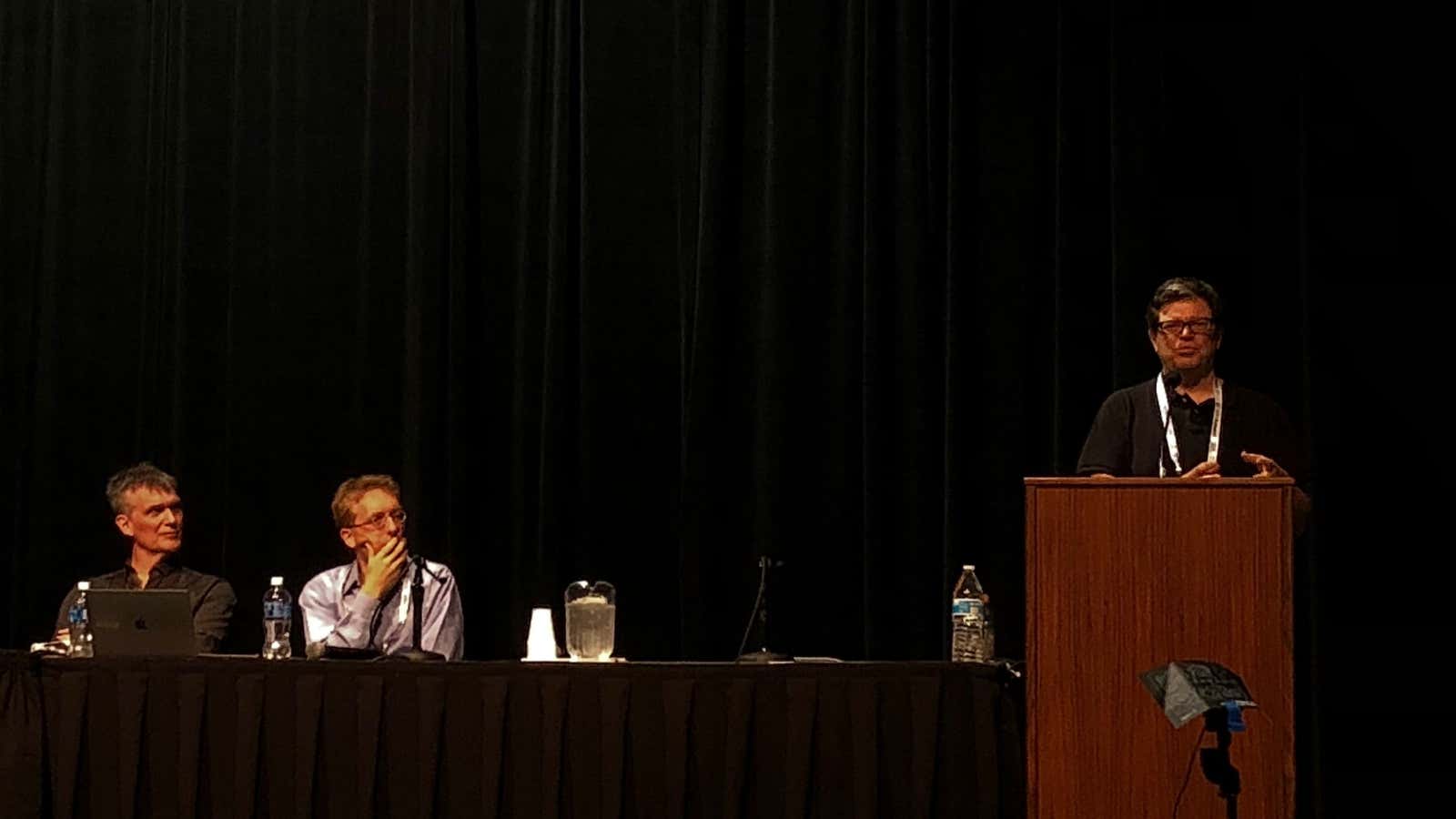Facebook has replaced the man Mark Zuckerberg recruited to run its artificial intelligence research, filling the role with an outsider who will take a bigger role at the company as it puts more AI into its News Feed and other products.
Yann LeCun, who founded Facebook’s AI Research lab (FAIR) in 2013, is stepping down as head of the research organization and will now serve as chief AI scientist. Jérôme Pesenti, former CEO of AI startup BenevolentTech and CTO of IBM’s Big Data group before that, succeeds him and also takes over Facebook’s Applied Machine Learning group, which implements AI into many Facebook products including its highly scrutinized News Feed.
Pesenti will report directly to Facebook’s chief technology officer. His newly created role combining research, development, and product underscores the importance of AI to Facebook’s future. ”There was a need for someone to basically oversee all the AI at Facebook, across research, development, and have a connection with product,” LeCun said in an interview with Quartz. “AML and FAIR were reporting to the CTO, who no longer has the bandwidth to take care of that, given the increased importance of AI and more systems built around deep learning.”
Artificial intelligence is the lifeblood of Facebook and its future. The technology drives the ultra-precise ad targeting that gives the company an edge over traditional advertising platforms, as well as features for users like automated photo tagging, News Feed ranking, and translation. Increased automation due to AI, whose operation might not be transparent to its creators, could be complicit in a majority of Facebook’s woes, including the spread of fake news on the platform and the ability to target specific racial groups with advertisements.
LeCun will retain control of FAIR’s research direction, but the day-to-day operations will now fall to Pesenti, who will report directly to CTO Mike Schroepfer. LeCun and AML head Joaquin Quiñonero Candela will report to Pesenti.
LeCun himself said that his expertise lies in research, especially setting goals and working with researchers to generate new AI techniques. Other parts of his job, including management of more than a hundred researchers and the role of AI evangelist for the company, he said he is “quite happy to hand that over.”
Pesenti was not available for an interview. LeCun, who was involved in the search, said Pesenti was chosen because of his expertise in research, management, and product development.
New direction for AI product
The Applied Machine Learning group will change direction under Pesenti, LeCun said. While the meteoric rise in AI’s use at Facebook had previously required much of the AML team to work closely with the Facebook infrastructure division, ensuring the company’s code and servers could translate, tag, and rank as fast as possible, the AML infrastructure group now join the company’s larger infrastructure division. Those remaining at AML will work more closely with FAIR on long-term research projects to incorporate the research team’s work into Facebook and its companies such as Instagram and Oculus.
LeCun started FAIR in 2013, approached by Zuckerberg with a blank check to build the world’s best AI research lab. Five years later the lab is still expanding and has six locations and roughly 100 staff members. The company announced yesterday it will double the Paris research lab to 60 researchers. LeCun added that Facebook wants to quadruple the 10 Ph.D students currently working in the lab, bringing the total headcount to around 100 in Paris.
The international labs, Paris and Montreal, attract AI talent outside of the US, and the Paris lab attracts talent from Africa. LeCun noted that the current 30-person Paris team consists of 12 different nationalities. The US has become slightly less attractive for some researchers and some visas can be more easily obtained in France, LeCun said.
LeCun, born and educated in France, started his career researching computer vision at Bell Labs after a postdoctoral stint with famed neural network progenitor Geoff Hinton. At Bell Labs, LeCun’s pursuit was to help computers see and understand the world the way humans do. At the time, Bell Labs was a premier facility for research on neural networks, an idea that by massively simplifying the structure of the human brain we could begin to replicate its processes.
While at Bell Labs, LeCun developed a neural network architecture called convolutional neural networks, which proved to be far more effective at processing images than previously thought possible. The technology soon found its way into ATMs to read the numbers on checks, and today it’s still used as the de facto method of image and video recognition.
The French computer scientist will stay based in New York, where he will continue to teach at New York University in New York City.
Facebook executives, especially founder and CEO Zuckerberg, have long preached that AI would be the technology to unlock a new future for humanity.
“We should not be afraid of AI. Instead, we should hope for the amazing amount of good it will do in the world,” Zuckerberg wrote in a 2016 post announcing his personal goal to build his own home automation system powered by AI. “It will saves lives by diagnosing diseases and driving us around more safely. It will enable breakthroughs by helping us find new planets and understand Earth’s climate. It will help in areas we haven’t even thought of today.”
